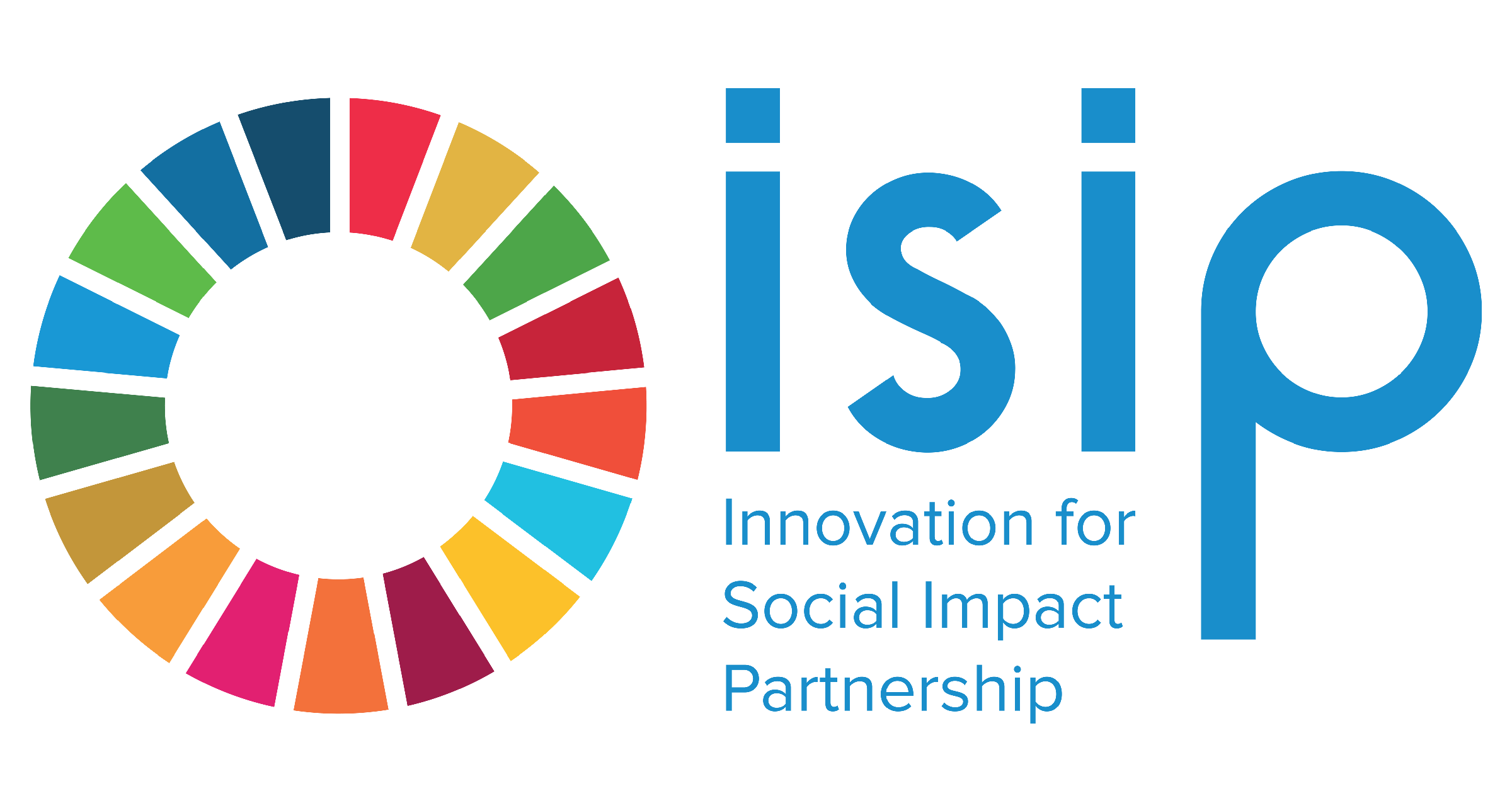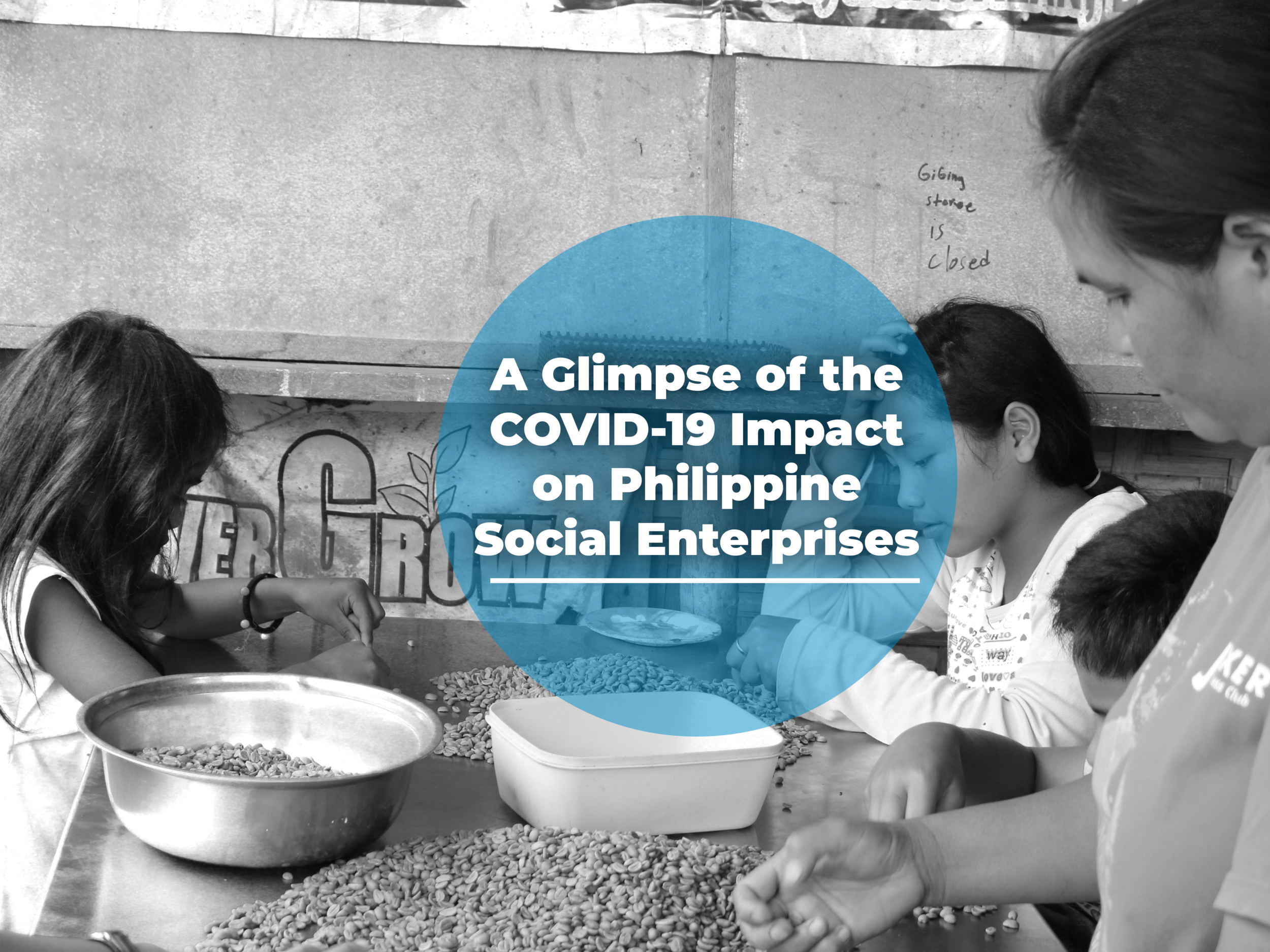A Glimpse of the COVID-19 Impact on Philippine Social Enterprises
Results of the Survey Conducted on the Social Enterprises under the ISIP Social Impact Accelerator
By Kevin Dela Cruz
According to the Philippine Statistics Authority, micro and small enterprises make up 99% of the businesses in the country while employing 28.9% of the private sector employees. Of which, 11% are categorized as social enterprises, wherein other than profit, community impact is also seen as a bottom line. Since the novel coronavirus or COVID-19 had its first case in the country last February 2020, this has drastically affected the functioning of public and private institutions aggravated by the declaration of the Enhanced Community Quarantine (ECQ).
Knowing the sensitive nature of the work done by social enterprises given its mission and impact orientation, the Innovation for Social Impact Partnership (ISIP) has conducted a survey related to the effects of COVID-19 to determine the extent of the challenges faced by the entrepreneurs in coping with the crisis. The respondents of this survey were the fifteen (15) social enterprises belonging to the ISIP Social Impact Accelerator Batches 1 and 2. Their responses are compiled and detailed as follows:
1) 1 in 3 responders identify themselves as consumer product and retail enterprises, while 4 out of 15 identify themselves as technology and innovation businesses. It can be noted that the consumer products described are both a mix of essential and non-essential items.
2) 6 out of 15 experienced a major slowdown in the business, while 4 out of 15 completely stopped operations since the Luzon-wide ECQ began on March 16. On the other hand, 2 out of 15 experienced a rise in their operations given their use of digital technology as the key driver of their enterprises. Those who are involved in heavy logistics have experienced the greater negative impact in their operations, while those who depended on social media and other online tools for business have thrived.
3) 1 out of 3 experienced 81 to 100% decline in overall monthly revenue caused mostly by halting their operations. 9 out of 15 had to borrow and reach into their savings to survive, including paying salaries, extending financial assistance to staff, and providing for staff essentials such as masks, alcohol and vitamins. As social enterprises, community partners are vital in every stage of their operation since they either become the supplying or processing partner in the business value chain.
4) 10 out of 15 attribute their business slowdown to the disruptions in their supply chain given the stringent government-mandated ECQ regulations to logistical mobility. One of the problems stated is the difference in the policies of the local government units in implementing the ECQ preventing smooth delivery of goods through the major roads.
5) 7 out of the 15 reduced their number of staff time to minimize cost, while 6 out the 15 reduced the founders and staff wages to stay afloat. 6 out of the 15 postponed their planned investment in their enterprise because of lack of confidence and uncertainty of demand. The delays have hampered the supposed influx of clients investing in their respective enterprises.
6) 7 out 15 plans to put their business on hold should the quarantine extend. 5 of the 15 reached out to other enterprises to collaborate and help each other out. 93% of the respondents have not received any form of subsidy for the impact of COVID-19 from the government or private institutions. Different enterprise communities such as IdeaSpace, Impact Hub Manila, Kickstart, QBO, and PhilDev Foundation have developed online learning and mentoring sessions to support the direct needs of the enterprises and to enable them to network for possible solutions from amongst each other.
What the Numbers Say
The data shows that there has been a drastic shift in the operations and strategy of the social enterprises, requiring them to reassess their business model while maintaining collaboration with their partner communities and beneficiaries who also depend on them for sustenance.
Despite the Memorandum Circular No. 20-08 released by the Department of Trade and Industry on Ensuring Unhampered Movement of Cargo and Transit of Personnel, the varying quarantine regulations as interpreted and implemented by different local government units (LGUs) became difficult to navigate for the social enterprises which resulted to disruptions to their supply chain.
With the unprecedented situation brought about by the COVID-19 pandemic, social enterprises expressed their need to reassess their business model, as it relates to their respective continuity and sustainability plans. According to the Philippine Disaster Resilience Foundation, given the numerous hazards happening in the Philippines, development of such plans should be the priority of all types of enterprises.
Some social enterprises have pivoted to create new products and services to help combat COVID-19 like Futuristic Aviation and Maritime Enterprise Inc. (FAME) that created RUWAH, a medical device that serves as a first responder respirator for COVID-19 patients. MAD Travel has created MAD Market, a delivery service that makes available fresh produce from their vulnerable partner communities. [READ: Impact-first: Social Enterprises in the Philippines Innovate to Respond to Coronavirus Pandemic]
With the social amelioration provision by the Department of Social Welfare and Development for vulnerable sectors, social enterprises would be key actors identifying needs of communities they have worked with and can aid in the implementation of the government program through the relationships they have built with such communities. This is while they are awaiting guidelines for the government provision on loans (Entrepreneurship Rehabilitation Financing by the Small Business Corporation and Rehabilitation Support Program on Severe Events by the Development Bank of the Philippines) to be used primarily for wage and operational subsidy.
Social enterprises with direct community partners have to change their business impact models to support their daily living through direct financing, digital fundraising, and market rechanneling. The agriculture-based enterprises have started to harness social media as an avenue to bring local produce to the direct home market.
Social entrepreneurs can take advantage of their enterprise networks so that they would have opportunities to work in collaboration with each other in developing market channels through digital support, sustaining community impact through resource coordination, and reorganizing the business organization through knowledge exchange.
Recommendations
Based on the recent projections of the Philippine Institute for Development Studies, the best expected time for the pandemic to subside will be at the end of June 2020. Partial business stability will take an additional six months of post-pandemic operations. Given this, the social enterprises themselves recommended these possible interventions for them: development of financing mechanisms for enterprise recovery, resource access for business continuity, communications support for market engagement, multi stakeholder dialogue with the private and government sectors for policy development and, cross sector collaboration with supporting organizations.
As reflected in the survey, with the expected shift in the global and local economy given the emergence of the new normal, the social enterprise sector would truly experience changes in their approaches in making an impact in their respective communities. With the increasing usage of the digital space especially at this time, the ISIP project is also adapting to such drastic transitions by pivoting its means of support to the impact enterprise space. Given this, one of the responses made by ISIP is the launch of the riSE up campaign, which aims to boost the advocacy support to the initiatives run by its cohort enterprises in response to the pandemic. Features, as well as calls for collaboration, will be released through the ISIP website and social media accounts about the latest projects that social entrepreneurs initiate at this time. Through this, it is not just the voices of the organizations that would be amplified, but also the communities who are doing collaborative works towards nation building in times of crisis.
Indeed, according to Margaret Mead, let us never doubt that a small group of thoughtful, committed citizens can change the world. Even though social enterprises are a small percentage as compared to other types of businesses, the support that is granted in this sector can lead to an impact that can transform a nation. This would not definitely happen overnight but with increased collaboration and trust, the bayanihan of Filipino entrepreneurs and communities can make a big difference.
--
The Innovation for Social Impact Partnership (ISIP) is a project co-implemented by the Philippine Development Foundation (PhilDev) and the United Nations Development Programme (UNDP) in the Philippines, with support from the Australian Embassy in the Philippines. It aims to support promising innovative Philippine social enterprises to have a shared contribution to the attainment of the Sustainable Development Goals. Through ISIP’s Social Impact Accelerator (SIA), selected late stage social enterprises are provided targeted assistance for one year in terms of scalability and sustainability to expand their capacity in enabling positive social change.



